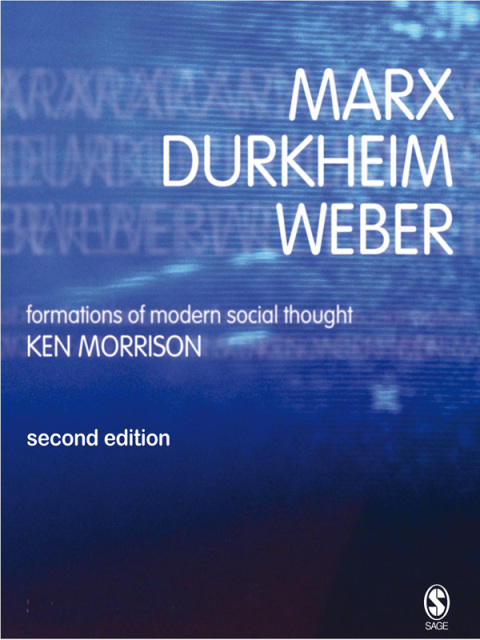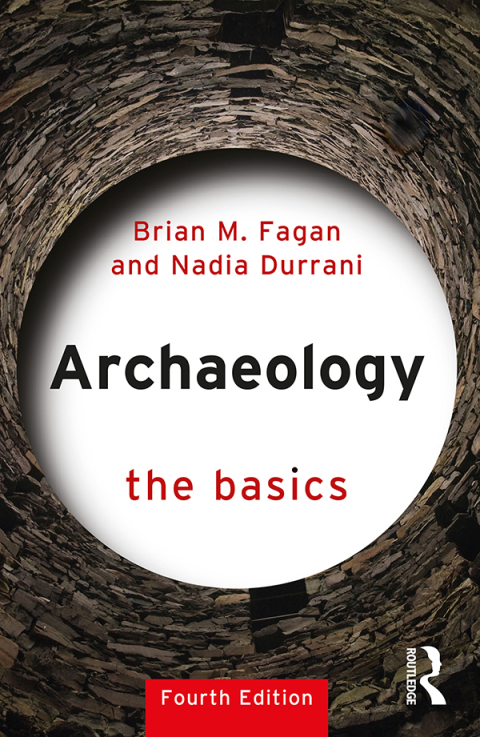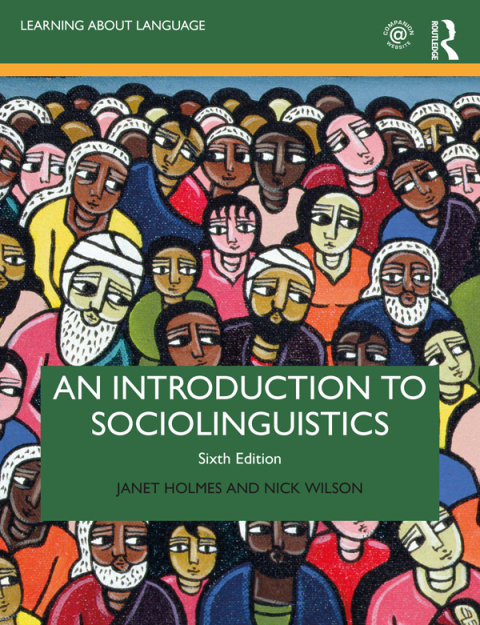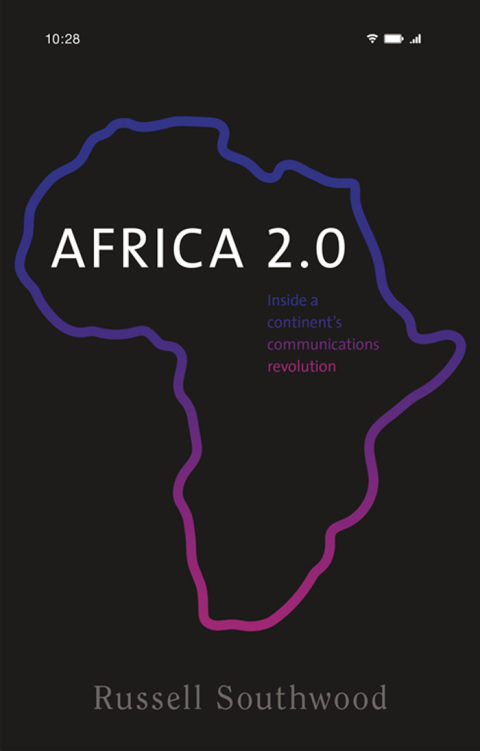Description
Efnisyfirlit
- Cover Page
- Title
- Copyright
- Dedication
- Contents
- Preface
- Acknowledgments
- 1 Introduction
- The Origins and Foundations of Modern Social Theory: 1750–1920
- Modern Social Theory Defined
- The Central Subject Matter of Social Theory
- 1 Political Change, the Feudal Dynamic and the Revolution in France
- The Fall of Feudalism and the Elimination of Social Distinctions
- 2 Economic Changes and the Development of Capitalism
- Depopulation, the Enclosure Movement and the Demographic Transfer of the Population
- The Growth of Town Economies
- Decline of the Guild System and the Beginning of Capitalist Development
- Management of the Problem Population: Unemployed Idle Laborers and the Dangerous Classes
- 3 The Dual Movement of Individualism and Industrialization
- Modern Social Thought and the Nineteenth Century Theories of Knowledge
- Classical Idealism
- Hegelian Idealism and the Theory of Historical Development
- Empiricism and the Growth of the Scientific Outlook
- The Development of Positivism
- 2 Karl Marx
- The Historical Context of Karl Marx’s Work
- Theoretical Influences on Marx’s view of Society and History: The Shift to Materialism
- Rejection of Hegel and Idealist Philosophy
- Materialism as a Theoretical Perspective
- The German Ideology
- Fundamental Aims of the Work and The Materialist Theory of History
- Means of Production
- Relations of Production
- Mode of Production, Forces of Production
- Laws of Historical Development: Different Forms of Ownership Over the Means of Production
- The Concept of Class and Class Structure
- Class Structure and the System of Social Relations
- The Concept of Class and the Relations of Subordination
- Marx’s Theory of Ideology
- The History of the Term in Hegel and Marx
- Definition of Ideology and its Material Origins
- The Five Building Blocks of Marx’s Theory of Ideology
- Explaining Contradictions
- Marx’s Economic Works: 1850–1867
- Marx, Capital and the Critique of Political Economy
- Marx’s Study of Capitalism:A Social and Historical Definition of Capitalism
- Capital, Vol. 1, Part A: Economic and Social Elements of Capitalism
- Commodities: Use Value and Exchange Value
- The Commensurability of Use with Exchange
- Consequences of Exchange on Social Relations
- Labor Theory of Value and the Dual Character of Labor Useful vs Abstract Labor
- Useful Labor
- Abstract Labor
- Capital Vol. 1, Part B: The Theory of Value
- The Origin of Value and the Value Form
- Relative and Equivalent Forms of Value
- Fetishism of Commodities
- Reification of Economy and Society
- Capital Vol. 1, Part C: Theory of Surplus Value
- Free Labor and the Emergence of Labor Power
- Surplus Labor, Surplus Value and the Maintenance of the Worker
- The History of Surplus Labor: The Working Day
- The Wage Form: Unpaid Labor
- Capital Vol. 1, Part D: The Genesis of Capitalism
- Primitive Accumulation
- The Stages of Primitive Accumulation
- Cooperation and Division of Labor
- Division of Labor: Simple and Complex Cooperation
- Theory of Alienation
- History of the Concept in Hegel
- Feuerbach’s Theory of Religious Alienation
- Marx’s Rejection of Feuerbach
- Marx’s theory of Alienation and the 1844 Manuscripts
- Marx’s Theory of Human Nature
- Alienation from the Product
- Alienation from Productive Activity
- Alienation from Species Activity
- Alienation from Fellow Humans
- Marx’s Political Writings
- History of Marx’s View of the State
- Hegel’s View of the State
- Marx and the Materialist Origins of the State: Base and Superstructure
- The Historical Origins of the Modern State: the Period of State Formation
- The State and Civil Society in Smith, Hegel and Marx
- Marx’s Dialectical View of History: The Theory of Development
- History of the Term ‘Dialectic’
- Hegel’s Dialectic
- Marx’s view of the Dialectic and his Theory of Development
- Difference Between Marx and Hegel in the Dialectical View of History
- Application of the Dialectic to History
- 3 Emile Durkheim
- The Historical Context of Emile Durkheim’s Work
- Theoretical Influences On Durkheim’s View of Society
- Auguste Comte’s Influence on Durkheim
- The Realist Perspective and the Study of Society
- The Problem of Individualism and the Utilitarian Theories of Society
- Individualist Theories of Society: Hobbes and Rousseau
- The Division of Labor in Society
- Central Thesis and Definition of the Division of Labor
- The Concept of Social Solidarity and Social Cohesion
- Characteristics of Mechanical and Organic Solidarity
- Characteristics of Organic Solidarity
- The Common Conscience and the Division of Labor
- System of Laws and Social Solidarity: Repressive and Restitutive Sanctions
- Penal Law and Repressive Sanctions
- Contract Law and Restitutive Sanctions
- Transition from Penal Law to Contract Law
- The Transition from Segmental Societies to Advanced Societies
- Main Causes of the Division of Labor
- The Proceess of Individualism and the Division of Labor
- Abnormal Developments in the Division of Labor: Anomie and the Forced Division of Labor
- The Rules of Sociological Method
- The Central Aims of the Rules
- Establishing the Existence of Social Realities Outside the Individual
- The Existence of Social Facts and their Differences from Individual Facts
- The Characteristics of Social Facts and Their Observation
- Problems in Observing Social Facts
- Collective Representations
- Social Morphology and the Classification of Social Types
- Durkheim’s Study of Suicide
- Historical Background and Central Thesis
- The Shift From a Psychological to a Social Theory of Suicide
- Opposition to Durkheim’s Argument and the ‘Corridor Incident’
- The Concept of the Social Suicide Rate
- Suicide and the Concept of Social Integration
- Suicide the Integrative Pole: Egoistic and Altruistic Suicide
- Religious Integration and Egoistic Suicide
- Family Integration and Egoistic Suicide
- Political Integration and Egoistic Suicide
- Explanation of Egoism and Egoistic Suicide
- Altruistic Suicide and Social Integration
- Military vs Civilian Suicides
- Suicide and the Regulative Pole:Anomic and
- Fatalistic Suicide
- Causes of Anomie and the Role Played by the Economy
- History of the Term Anomie
- Fatalistic Suicide
- The Elementary Form of the Religious Life
- The Historical Context of the Work
- Fundamental Aims of the Study
- Central Argument: Durkheim’s Search for a Definition of Religion
- Search for the Most Elementary Religion: The Totem Tribes of Central Australia
- The Totem and the Social Classification of the Universe: The Fundamental Organizing Principle
- The Two Phases of Social Life: Effervescent Assemblies and the Birth of the ‘Religious’
- The Material Effects of Religious Enactments
- Durkheim’s Theory of the Social Origin of the Categories of Understanding
- Durkheim’s Opposition to Philosophy
- Durkheim’s Theory of the Categories and his Opposition to Kant and Hume
- Durkheim’s Evidence for the Social Origins of the Categories: Space as a Social Category
- Durkheim’s Evidence: Time as a Social Category
- Durkheim’s Evidence: The Social Origin of the Concept of Cause
- Durkheim’s Theory of the Categories of Understanding: Criticism and Debate
- Warren Schmaus’View of Durkheim’s Theory of the Categories
- Anne Rawls’View of Durkheim’s Theory of the Categories
- The Debate Between Schmaus and Rawls on the Origins of the Categories
- Durkheim’s Battle with Classical Rationalism: The Critique of Philosophy
- 4 Max Weber
- The Historical Context of Max Weber’s Work
- Weber’s Theoretical Perspective and Fundamental Themes in his Work
- Weber’s Difference From Marx
- Weber’s View of History and the Continuity of Civilization Processes
- The Theme of Rationalization in Weber’s Work
- Rationalization Defined
- Rationalization and Religious World Views Calculation and the Process of Rationalization
- The Distinction between Rationality and Rationalization
- The Theme of Capitalism in Weber’s Work
- General Economic History
- Economic Background
- The Role of the Guilds in Capitalist Development
- The Non-Economic Factors in Capitalist Development
- Rational Capitalism and the Growth of the ‘Gain Spirit’
- Weber’s Theory of Social Classes and Status Groups
- Weber’s Theory of Social Class: Class and the Market Situation
- Action Flowing from Class Interests
- Class Antagonism and Historical Types of Class Struggle
- Weber’s Concept of the Status Group: The Separation of Status from Class
- Characteristics of Status Groups
- Political Parties
- The Protestant Ethic and the Spirit of Capitalism
- Weber’s Central Thesis and Fundamental Aims of the Study
- The Escape of Asceticism from the Religious Cage and the Impact on Economic Activity
- The ‘Spirit’of Capitalism Defined
- Distinctiveness of the ‘Spirit’in Modern Capitalism: Traditional vs Modern Capitalism
- Calvinism and Capitalism
- Effects of Calvin’s Doctrine on Conduct in the World: Psychological Sanctions and Inner Worldly Asceticism
- The Link Between Salvation Theology and the Commercial Spirit
- Asceticism, Capitalism and the Transformation of the ‘Calling’
- Weber’s Methodology and the Theory of Knowledge in the Social Sciences
- Historical and Philosophic Background of Weber’s Methodology
- Wilhelm Windelband’s Criticism of the Natural Sciences
- Heinrich Rickert and the Theory of Knowledge in the Social and Historical Sciences
- Theories of Knowledge in the Natural and Social Sciences: Facts vs Values
- Controversy Over Methods in the Natural and Social Sciences: The Methodenstreit of the 1880’s
- Weber’s Contribution to the Methodological Controversy
- Weber’s Concept of the ‘Ideal Type’
- Weber’s Theory of Social Action
- Two Types of Understanding: Weber’s Interpretive Theory of Action
- Social Action and the Concept of Rationality
- Four Types of Social Action and Their Forms of Rationality Traditional Action
- Affectual (Emotional) Action
- Value Rational Action
- Instrumental Rational Action
- The Theory of Legitimate Domination:Weber’s Political Writings
- The Concept of Political Authority, Legitimacy and Administrative Apparatus
- Charismatic Domination
- Charismatic Domination and Administration
- Traditional Domination
- Patrimonial and Patriarchal Forms of Administration
- Patriarchal Authority and the Power of the Edict
- Legal Domination
- Statute vs the Edict
- Weber’s Study of Bureaucracy
- Historical Context of Bureaucracy
- Distinction between Administratively Oriented Societies and Bureaucratic Societies
- Historical Factors Leading to Bureaucratization
- Key Concepts in Weber’s Study of Bureaucracy: System of Rationality and Means and Ends
- The Technical Superiority of Bureaucracy
- Characteristics of Bureaucracy
- Concept of the ‘Office’in Bureaucratic Organization
- Bureaucracy and Law
- Leveling of Social Differences
- Consequences of Bureaucracy
- Glossary of Concepts
- Marx
- Durkheim
- Weber
- Bibliography
- Index





